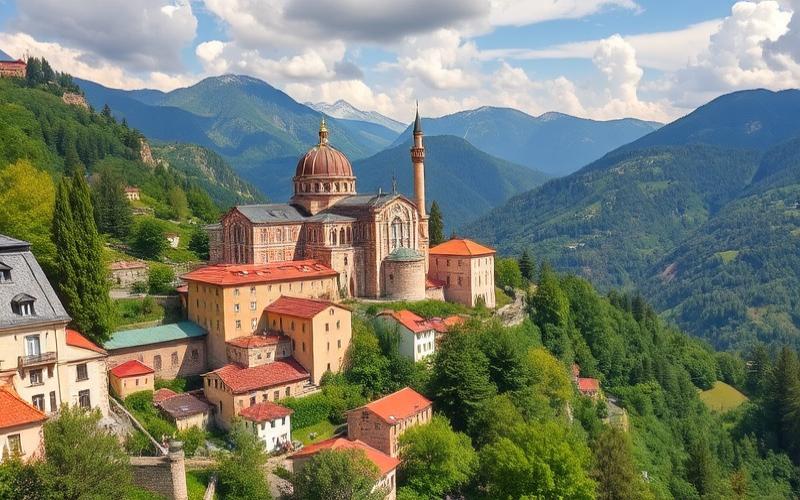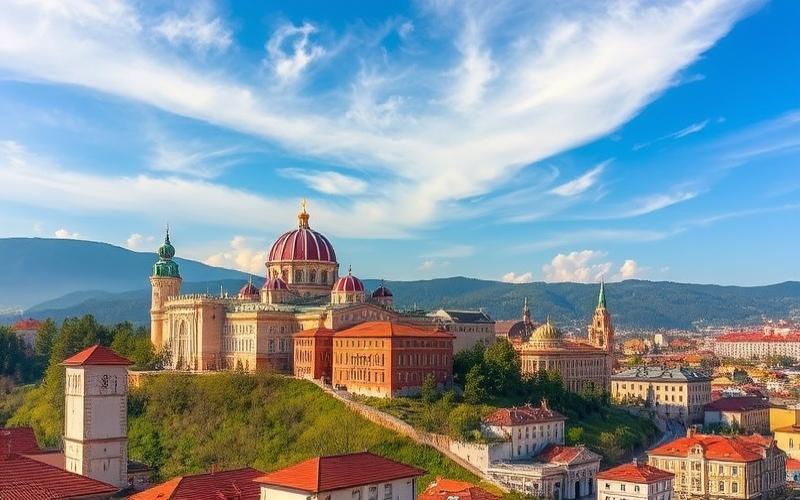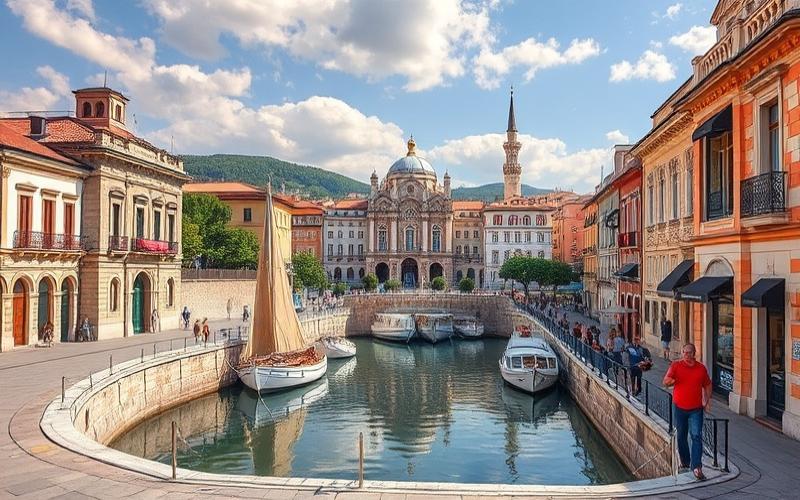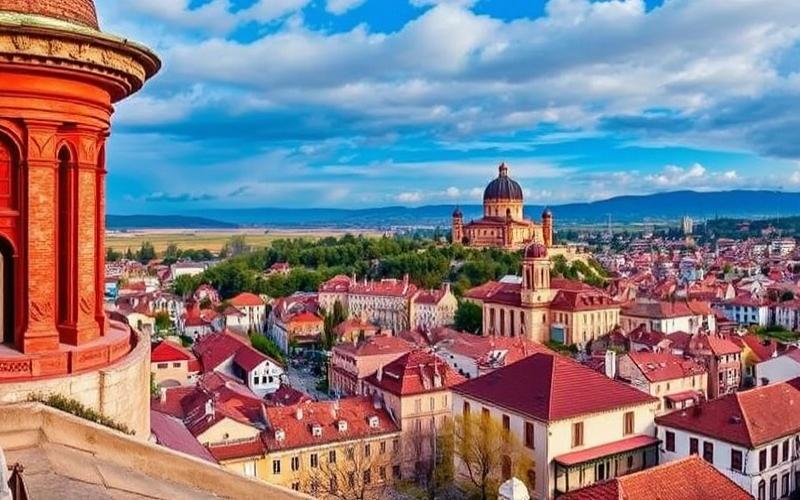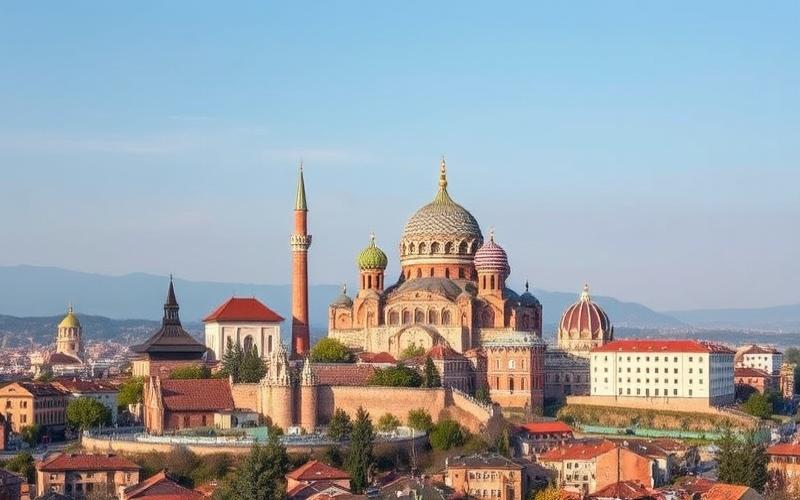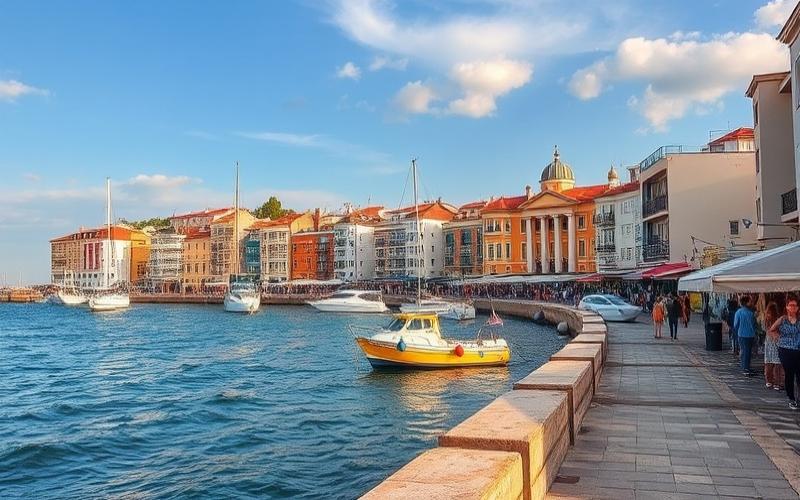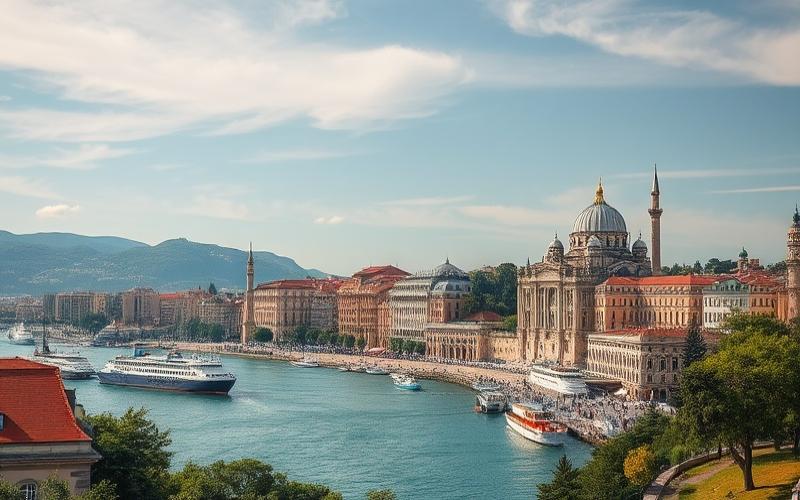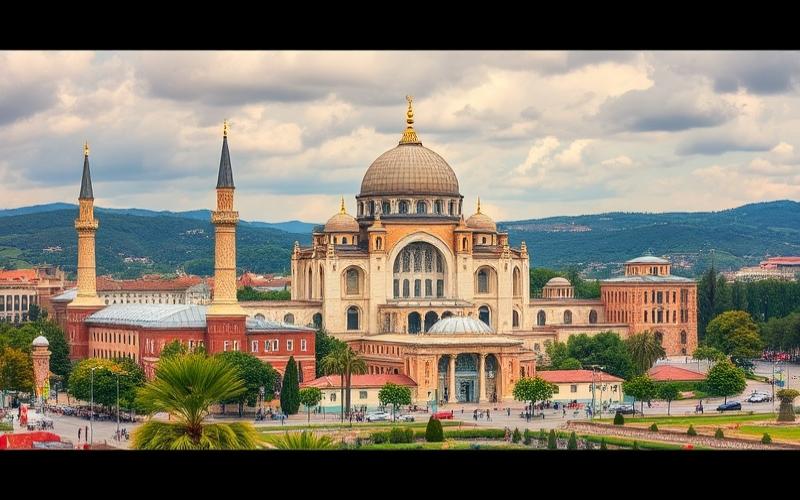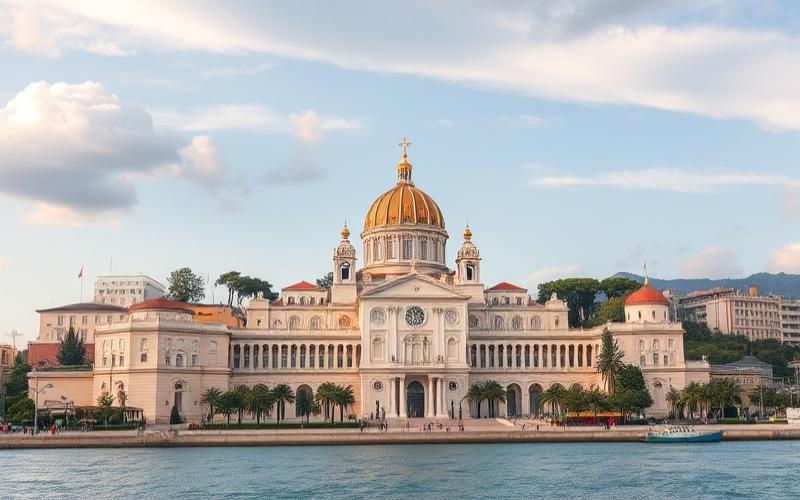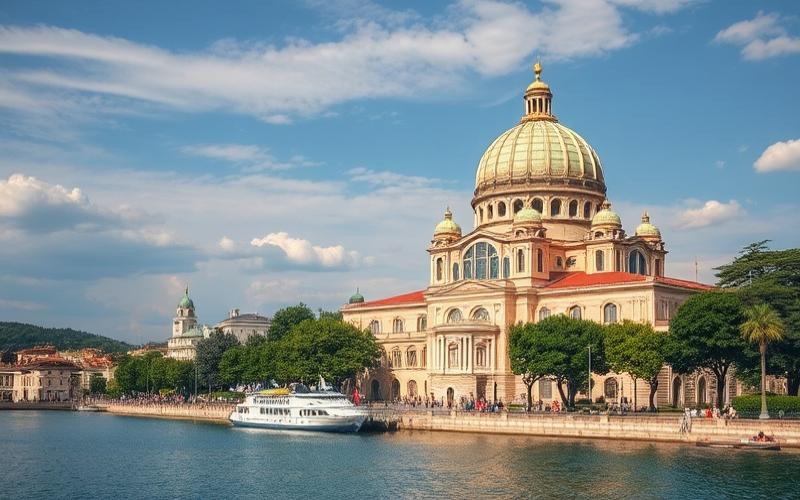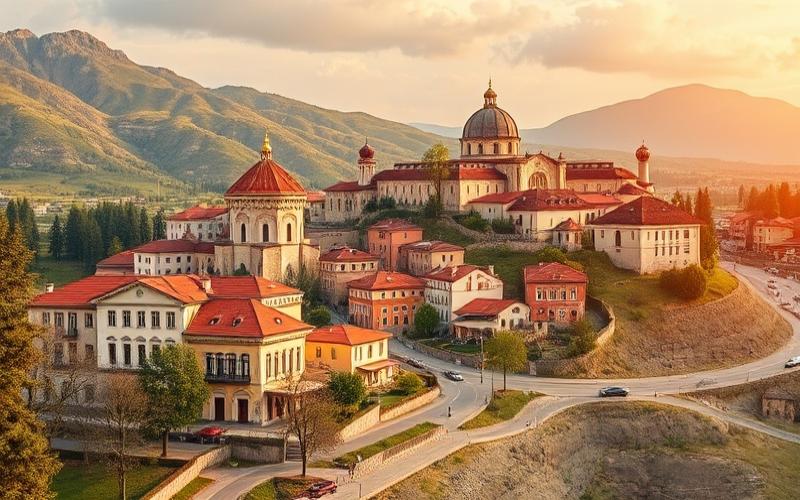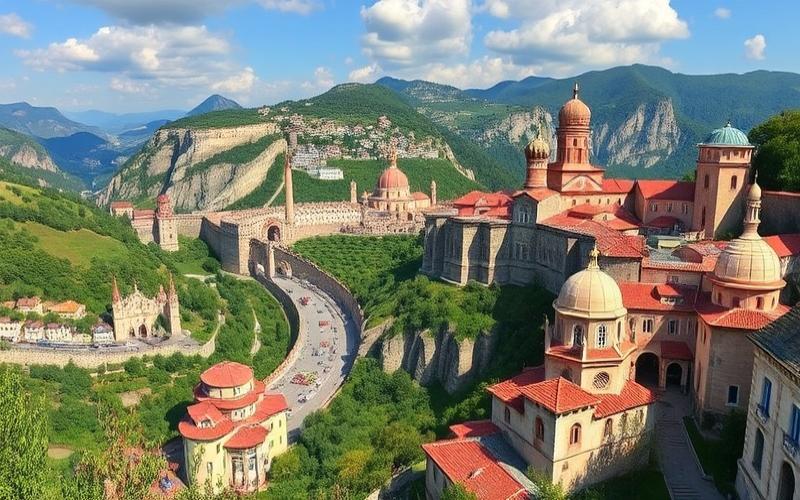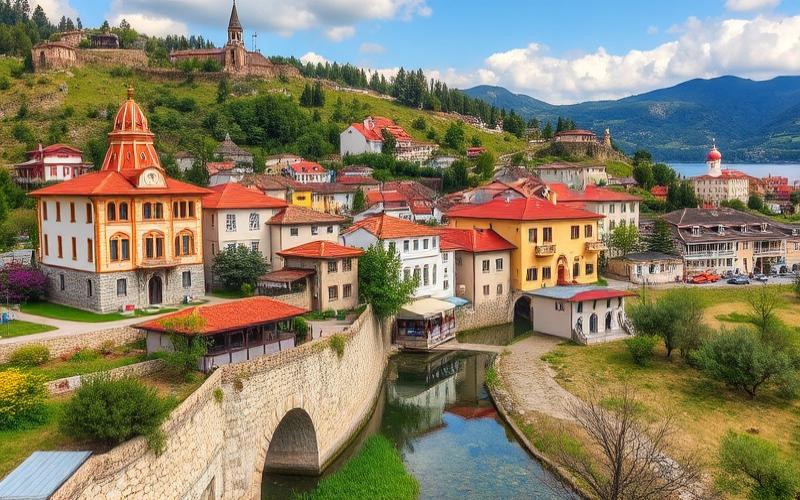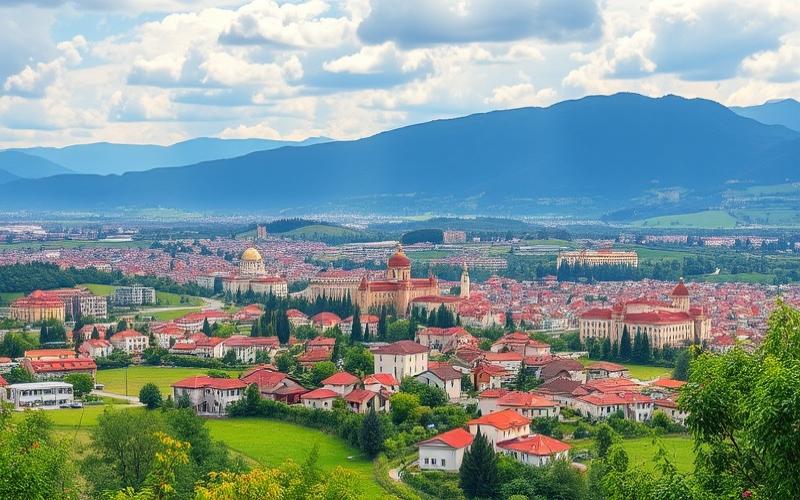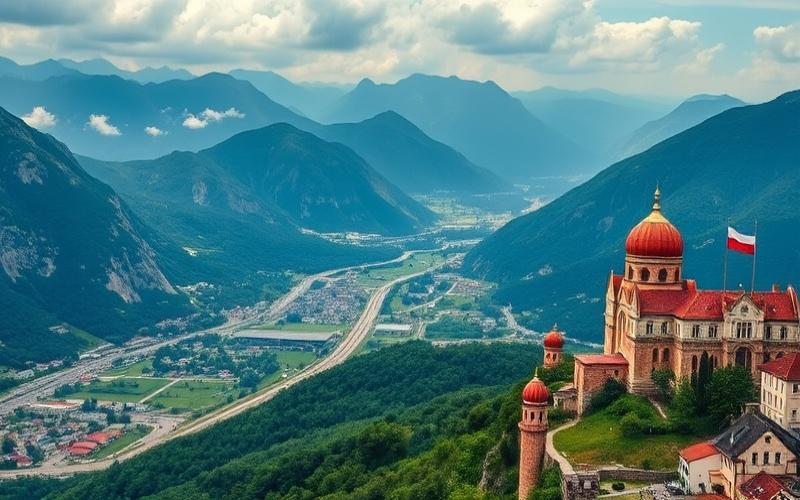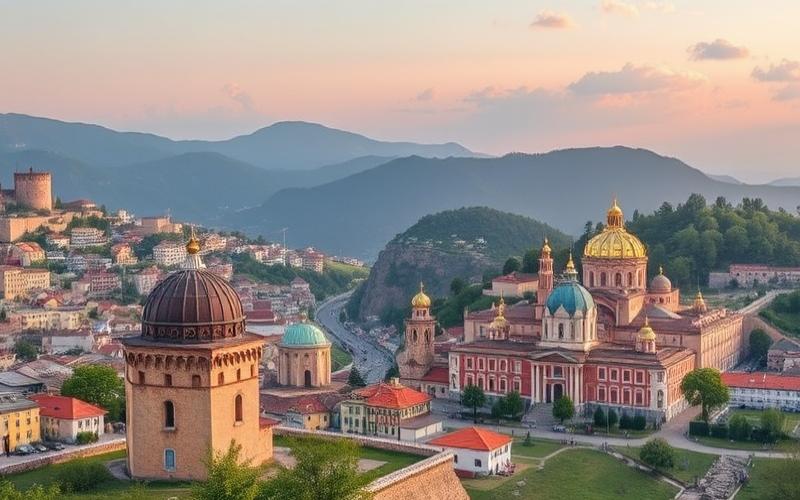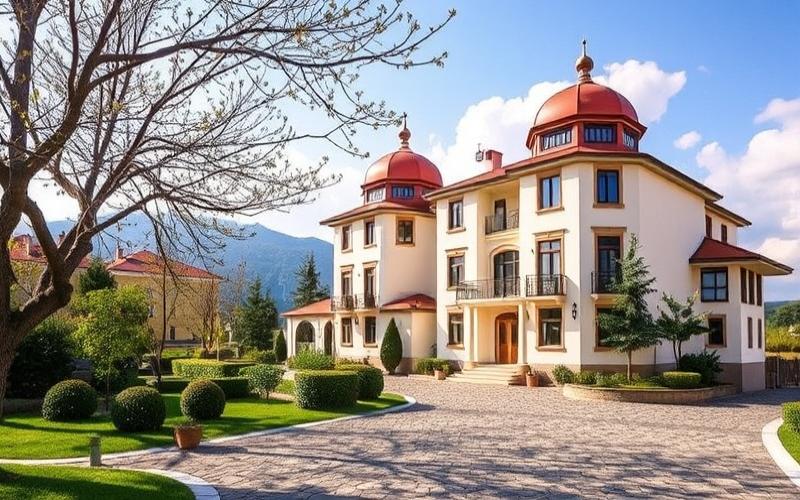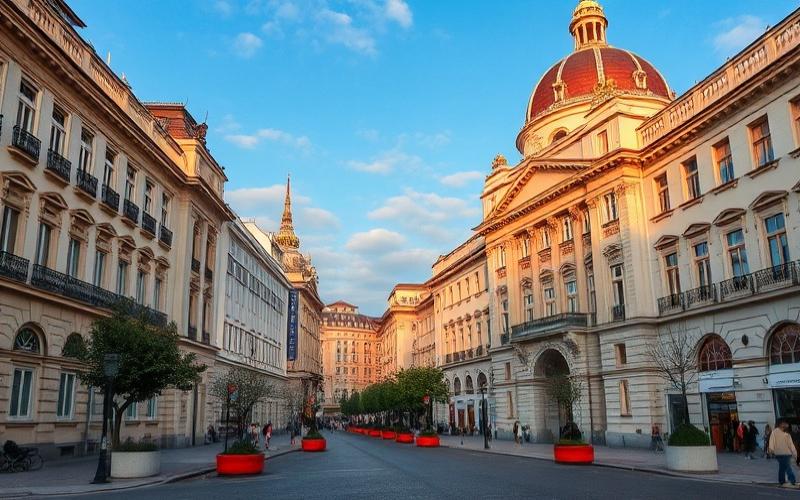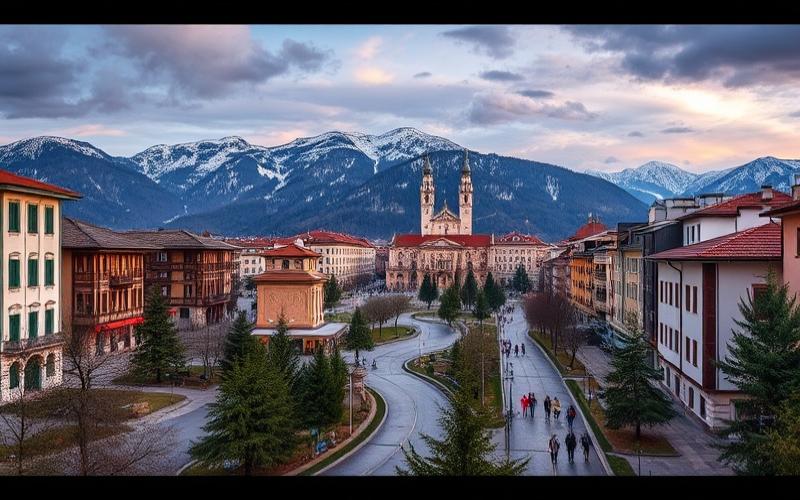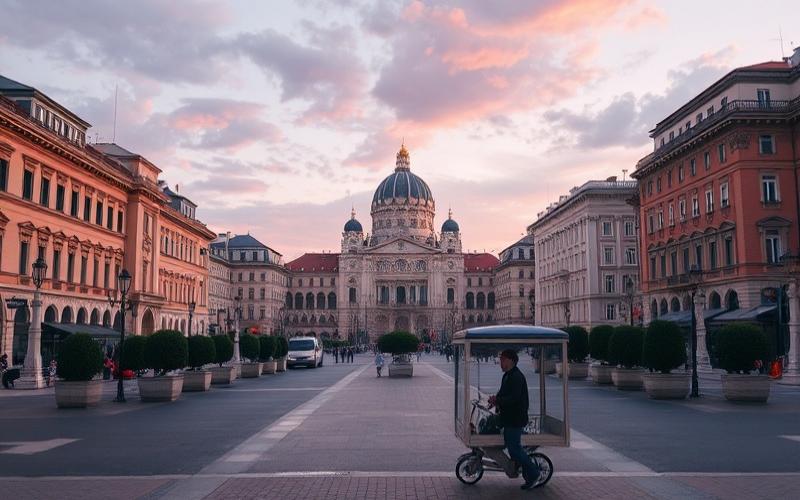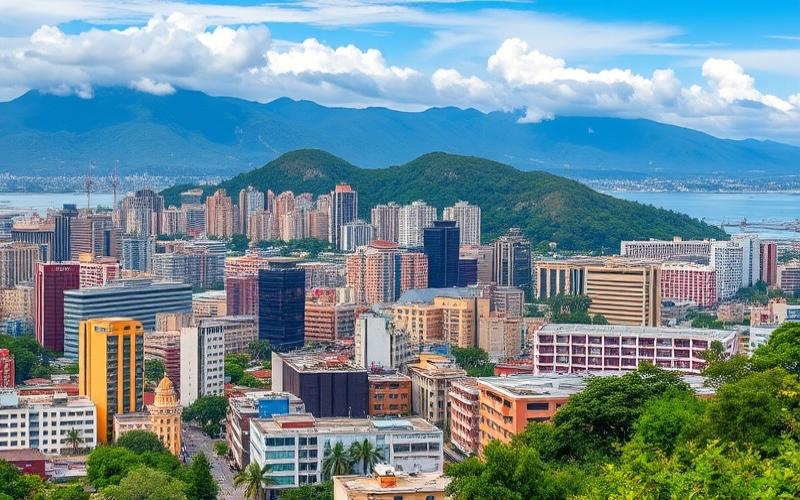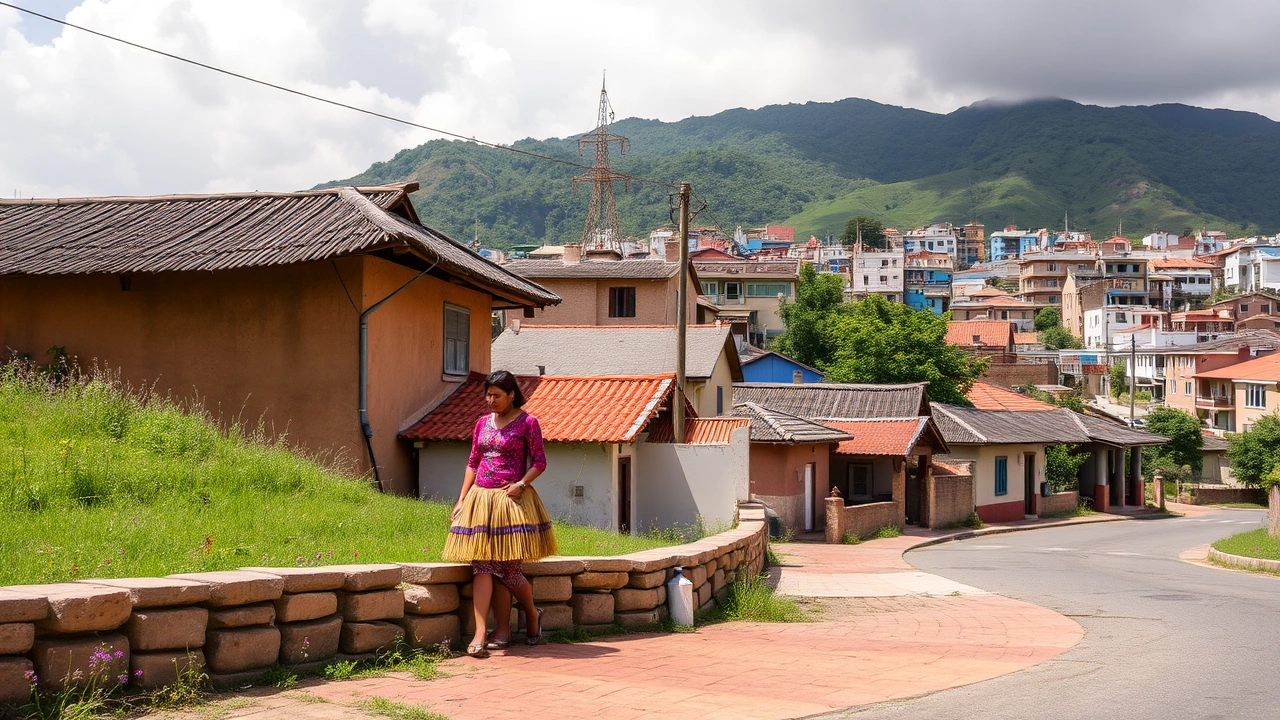
 Published on and written by Cyril Jarnias
Published on and written by Cyril Jarnias
In the heart of Eastern Europe, Bulgaria is establishing itself as a premier destination for seniors seeking a living environment that combines comfort and serenity. Rapidly expanding, the senior living market in this country appeals not only through its growing economic potential but also through its varied and innovative offerings. With an aging population and increased demand for personalized services, these facilities are adapting and diversifying, integrating medical, recreational, and wellness services. This phenomenon is attracting the attention of investors and developers who see Bulgaria as a strategic opportunity, promising competitive returns and significant societal impact.
The Senior Living Market in Bulgaria
The Emerging Senior Living Market in Bulgaria
The senior living market in Bulgaria is still in its embryonic stage but has been experiencing rapid growth in recent years. This evolution is primarily due to the accelerated aging of the Bulgarian population, which is among the fastest in the world. Indeed, the share of people aged 65 and over is expected to reach nearly 25% of the total population by 2040, thus creating growing demand for suitable housing solutions.
Rapidly Expanding Demand
Demand for senior living in Bulgaria is driven by several factors:
– Increased life expectancy, now reaching 75 years on average – Evolving attitudes, with greater acceptance of community living among seniors – The desire for independence and security expressed by many elderly people – The search for services and activities suited to active aging
A Limited but Promising Market
Although the number of senior living facilities remains limited in Bulgaria, there has been an acceleration in construction projects in recent years. Major cities like Sofia, Plovdiv, and Varna are seeing new residential complexes dedicated to seniors emerge, offering adapted apartments and a range of on-site services.
Several international players are beginning to show interest in the Bulgarian market, attracted by its growth potential. Groups specialized in managing senior living facilities in Western Europe are considering partnerships with local developers to expand this concept in Bulgaria.
Challenges to Overcome
Despite these encouraging prospects, the senior living market in Bulgaria faces several challenges:
– The limited purchasing power of a large portion of the elderly population – The lack of specific regulations governing this type of facility – Competition from traditional solutions like home care or public nursing homes – The shortage of qualified personnel in the elderly care sector
Evolving Public Policies
The Bulgarian government is gradually recognizing the importance of developing suitable housing solutions for seniors. Discussions are underway to establish a regulatory framework specific to senior living and encourage private investment in this sector. Tax incentives could be considered to stimulate the construction of new facilities.
Future Outlook
Despite current challenges, the senior living market in Bulgaria presents strong growth potential for the coming years. The rapid increase in the elderly population, combined with evolving senior expectations regarding quality of life, should support the development of this sector. We can expect a diversification of offerings, with the emergence of facilities targeting different market segments, from economical establishments to high-end complexes.
The professionalization of the sector and the arrival of experienced operators should also contribute to improving the quality of services offered. In the long term, senior living facilities could play an important role in addressing the aging of the Bulgarian population, complementing existing solutions.
Good to Know:
The senior living market in Bulgaria is rapidly expanding, driven by the fast-aging population and increasing life expectancy. Bulgarian seniors are showing growing interest in adapted housing that offers both comfort and assistance, thereby increasing demand for these residences. Local and international companies, such as Harmonia and Sofia Care, are responding to this demand by developing new constructions, often integrated into modern complexes with innovative facilities. Government policies encouraging such initiatives also play a key role, although challenges remain, such as funding and service quality regulation. In the future, the market could benefit from increased diversification of its offerings to meet the specific needs of different senior market segments.
Benefits of Investing in Bulgaria’s Senior Sector
A Rapidly Expanding Senior Market
Demographic aging in Bulgaria and Europe creates fertile ground for investors in the senior sector. By 2050, it is projected that the share of people aged 65 and over will reach 28.5% of the European population, an increase of nearly 10 percentage points. In Bulgaria, this trend is even more pronounced, with projections indicating that 32.5% of the population will be 65 and over by 2050.
This demographic evolution is accompanied by growing demand for services and infrastructure adapted to seniors, offering promising investment opportunities in senior living and care facilities.
An Environment Favorable to Foreign Investment
The Bulgarian government has implemented attractive policies for foreign investors in the health and wellness sector. In 2023, foreign direct investment in Bulgaria more than doubled compared to the previous year, reaching 1.11 billion euros. This significant increase demonstrates investor confidence in the Bulgarian economy and its growth prospects.
The health sector, in particular, is receiving special attention. The government has allocated significant funds to modernize medical infrastructure, creating opportunities for private investors to participate in this transformation.
Attractive Returns in a Developing Market
Senior living facilities in Bulgaria offer promising return prospects for several reasons:
- Growing demand facing still limited supply
- Relatively low operating costs compared to other European countries
- Significant appreciation potential as the market develops
Furthermore, the ongoing modernization of health infrastructure in the country creates a favorable environment for developing quality services for seniors.
Innovative Projects in Development
Several projects illustrate the investment potential in Bulgaria’s senior sector:
The construction of Bulgaria’s first pediatric hospital in Burgas, co-financed by the European Investment Bank, demonstrates the country’s commitment to modernizing its health infrastructure. Although this project is not directly related to the senior sector, it shows the country’s openness to foreign investment in the health field.
The development of next-generation senior living facilities inspired by Western models is beginning to emerge in major Bulgarian cities, offering opportunities for investors to position themselves in a still unsaturated market.
Favorable Regional Economic Context
Positive economic forecasts for the Western Balkans region, of which Bulgaria is part, enhance the country’s attractiveness to investors. The World Bank projects economic growth of 3.7% for the region in 2025, supported by increased consumption and investment.
This positive economic dynamic, combined with population aging and infrastructure modernization efforts, creates an environment favorable to investment in Bulgaria’s senior sector.
Good to Know:
Investing in Bulgaria’s senior sector proves particularly attractive due to several key factors. With an aging population constantly increasing both in Bulgaria and Europe, demand for senior living continues to grow. The Bulgarian government actively supports foreign investment through incentive policies in the health and wellness sector, which enhances appeal for investors. Furthermore, positive economic forecasts for the region indicate a context conducive to interesting returns. The ongoing modernization of infrastructure and services in the country also favors the development of high-level facilities. A notable example is the recent success of the Silver City project in Sofia, which shows how these initiatives can meet growing senior expectations while generating substantial profits.
How to Choose the Right Assisted Living Facility in Sofia
Essential Criteria for Choosing an Assisted Living Facility in Sofia
When choosing an assisted living facility in Sofia, it’s crucial to consider several essential criteria to ensure residents’ well-being and quality of life. The quality of medical care is paramount, with particular attention paid to the presence of qualified medical staff available 24/7. It’s recommended to verify the presence of sufficient doctors, nurses, and caregivers to meet residents’ needs.
The diversity of activities offered plays a crucial role in maintaining residents’ mental and physical health. Facilities offering a variety of social, cultural, and physical activities adapted to elderly people are preferable. These activities can include creative workshops, gentle exercise sessions, cultural outings, or board games.
Proximity to essential services and public transportation is an important factor to consider. A residence located near shops, parks, and well-served by public transportation will facilitate residents’ and their relatives’ movements. In Sofia, it’s wise to choose a facility close to metro or bus lines for better accessibility.
Services Offered and Price Range
Assisted living facilities in Sofia typically offer a range of varied services, from basic care to more specialized support. Basic services often include accommodation, meals, housekeeping, and laundry. More specialized services can include physiotherapy, occupational therapy, or dedicated units for people with Alzheimer’s disease.
In terms of pricing, the monthly cost of an assisted living facility in Sofia can vary considerably. On average, expect between €400 and €600 per month, including housing and basic services. This amount can increase depending on additional services and the level of care required. It’s important to note that these prices are generally lower than those in other European capitals, thus offering good value for money.
The Importance of Visits and Questions to Ask
Personally visiting facilities is a crucial step in the selection process. During these visits, it’s recommended to carefully observe the environment, general atmosphere, and interaction between staff and residents. Don’t hesitate to ask specific questions about:
- Staff qualifications and experience
- Available medical equipment
- Quality and variety of meals offered
- Safety protocols in place
- Room customization options
This information will help you assess whether the facility meets your loved one’s specific needs.
The Impact of Location in Sofia
Geographic location within Sofia can significantly impact residents’ quality of life. Central neighborhoods like Oborishte or Lozenets generally offer better access to cultural services and green spaces, while more peripheral areas like Mladost or Lyulin may offer a calmer environment and more affordable rates.
Participating in guided tours of multiple facilities is an excellent way to compare available options. Many facilities in Sofia offer open houses or appointments, allowing families to get a precise idea of the environment and services offered.
Good to Know:
To choose the right assisted living facility in Sofia, it’s essential to consider criteria such as the quality of medical care, the diversity of activities offered, and proximity to essential services and public transportation. Check the facility’s reputation and explore different types of services offered: some residents may require specialized care, while others will appreciate a diverse range of activities and leisure. Prices vary considerably, so it’s useful to compare with the local market; however, remember that higher rates may indicate better service quality. A facility visit is crucial to ask specific questions about staff, equipment, and food to ensure they meet your expectations. Geographic location can also influence your decision: a well-connected residence in the city center may offer easier access to various amenities. Participate in guided tours of multiple facilities to evaluate available options and make an informed choice.
Future Prospects for Health Investment in Bulgaria
Demographic Trends and Growing Demand
Bulgaria faces rapid population aging, with a growing proportion of people aged 60 and over. This demographic evolution leads to a significant increase in demand for senior-adapted living facilities and specialized healthcare. By 2050, it’s estimated that nearly one-third of the Bulgarian population will be over 60, highlighting the urgency to develop appropriate housing and health infrastructure.
Government Policies and Economic Incentives
The Bulgarian government has recognized the need to invest in the health sector for healthy aging. Recent reforms aim to modernize the healthcare system and encourage private investment. Tax incentives and subsidies are being implemented to attract investors to the senior living sector. The National Recovery and Resilience Plan also provides substantial funds for modernizing health infrastructure, creating a favorable environment for investment in this sector.
Technological Innovations in Healthcare
The integration of cutting-edge technologies in senior living facilities offers considerable potential to improve residents’ quality of life. Bulgaria is committed to the digital transformation of its healthcare system, paving the way for the adoption of innovative solutions in senior living. Telemedicine technologies, remote health monitoring systems, and smart assistance devices are particularly promising for providing personalized and preventive care to seniors.
Opportunities for Investors
The Bulgarian senior living market presents attractive opportunities for foreign and local investors. Growing demand, combined with favorable government policies and relatively low operating costs, creates an environment conducive to investment. Investors can consider various models, ranging from constructing new facilities to modernizing existing installations, through public-private partnerships for developing integrated health infrastructure.
Challenges and Solutions for Sustainable Development
One of the main challenges in the sector is the shortage of qualified healthcare personnel, particularly in rural areas. To overcome this obstacle, training and retraining initiatives are being implemented, with a focus on geriatric skills and health technologies. Collaboration with universities and vocational training centers is encouraged to develop programs adapted to the sector’s specific needs. Additionally, attracting foreign healthcare professionals and implementing internal mobility programs are being considered to address human resource gaps.
Good to Know:
The rapid growth of Bulgaria’s senior population, projected to reach nearly 30% by 2050, is transforming the senior living market into a key opportunity for investors. Government policies encourage health investments, particularly through tax incentives and subsidies to support healthy aging. Technological innovations, such as telemedicine tools and connected health monitoring devices, present themselves as effective solutions to improve senior residents’ quality of life and are gradually being integrated into these facilities. Local and foreign investors have an opportunity to capitalize on this growing market, although the shortage of healthcare professionals remains a major challenge. To overcome this obstacle, partnerships with educational institutions and continuous staff training are essential to ensure sustained and sustainable sector development.
Disclaimer: The information provided on this website is for informational purposes only and does not constitute financial, legal, or professional advice. We encourage you to consult qualified experts before making any investment, real estate, or expatriation decisions. Although we strive to maintain up-to-date and accurate information, we do not guarantee the completeness, accuracy, or timeliness of the proposed content. As investment and expatriation involve risks, we disclaim any liability for potential losses or damages arising from the use of this site. Your use of this site confirms your acceptance of these terms and your understanding of the associated risks.


